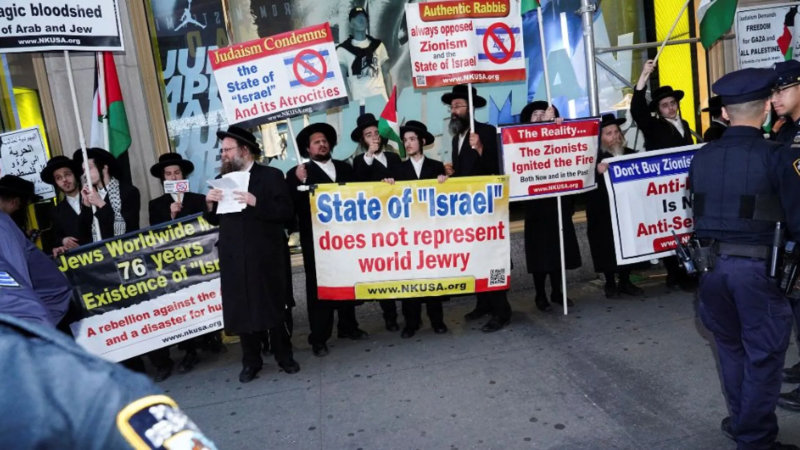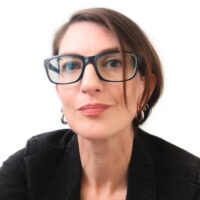Submissions to the NSW antisemitism inquiry show large cohorts of Jewish people reject the attempts at conflating Zionism with Judaism and criticism of Israel with antisemitism. Emma Thomas reports.
Coming out of NSW’s ‘summer of racism’, the inquiry seeks to investigate and combat an “alarming rise in antisemitism, including record levels on university campuses and in schools, [which] threatens both public safety and community cohesion’,” according to committee chair, Robert Borsak, of the Shooters, Fishers and Farmers Party.
Despite this a priori framing, a large number of the published submissions challenge the inquiry’s narrow framework, calling instead for nuanced approaches to tackling antisemitism that are attentive Jewish Australians’ diverse experiences and opinions.
Judaism does not equal Zionism
Of the 66 published submissions, 35 – almost all from Jewish individuals and organisations – explicitly reject the conflation of (political) Zionism with Judaism and the attendant assertion that criticism of Israel is inherently antisemitic. This includes the submission from the Great Synagogue, which advocates for education on “the distinction between criticism of Israeli government policy and antisemitic speech or behaviour.”
“Judaism existed for 3000 years before Zionism,” reads one submission,
and many Jews are not zionists and do not support Israel’s genocidal war.
Members of the state’s Jewish community express concern that antisemitism is being ‘politicised’ and ‘weaponised’ to ‘suppress pro-Palestine speech’, ‘curtail our civil rights’, and to shield Israel from legitimate political criticism.
“To object to the genocide and slaughter of innocent Palestinian lives is NOT antisemitic,” writes a long-term resident of NSW, born and raised in Israel.
Representative bodies not representative
Established Jewish bodies’ failure to represent what one Jewish organisation calls “the full diversity of opinion in the Jewish community” is a common theme. As another Jewish group notes, the inquiry itself is largely limited to addressing “concerns from conservative Jewish community members” (emphasis added).
This lack of representation is especially pronounced when it comes to the range of Jewish political opinion on Israel and Palestine. A son of Holocaust survivors voices his ‘disgust’ at ‘Israel’s treatment of the Palestinian population’ and refutes ‘the claims by The Executive Council of Australian Jewry to represent the voice of all Australian Jews.’ A Jewish resident of regional NSW writes:
“Individuals have occasionally assumed that I had some association with Israel, which is profoundly offensive and undoubtedly motivated by the antisemitic conceit that all Jews have some inherent connection with that country and that it somehow represents our interests, a conceit, I hasten to add, that Israel and most Jewish “communal” bodies are keen to inculcate.”
Media and government are also accused of upholding that conceit, with one submission stating, “Jewish opponents of Israel’s actions against Palestinians are currently finding it hard to have our voices heard in the public media and by our Governments.”
One Sydneysider, descended from Holocaust survivors, describes it as “perverse that mainstream Jewish organisations, as well as public institutions, the media, politicians and public figures,
routinely conflate Jewish identity with support for Israel and Zionism.
Dutton’s dog whistle – why the grandstanding on antisemitism
Antisemitism from Zionists
According to the submissions, Zionists – Jewish and Christian – are among the perpetrators of antisemitism levelled at members of Australia’s Jewish community who openly express solidarity with Palestinians.
One person reports being called a ‘self-hating Jew’, a ‘Jewish traitor’ and an ‘antisemite’ for opposing Israel’s actions in Palestine. Another writes of how Israel’s supporters denigrate those who hold different political beliefs as ‘not “real Jews”’.
A descendent of survivors of the Holocaust and Armenian genocide writes of being labelled a ‘kapo’ (an offensive reference to concentration camps prisoners used as functionaries by the Nazis), a ‘fake Jew’, a ‘neo-nazi’ and a ‘traitor to [his] people’. This person reminds the inquiry that the prominent lawyer and former president of the Zionist Federation of Australia, Mark Liebler, has publicly denounced pro-Palestine Jews as ‘repulsive and revolting human beings’ and ‘[vicious] antisemites’.
A Jewish resident of Sydney’s Inner West states that “Since October 7th, the only fear I have regularly experienced has come from Zionists, both Jewish and not.”
Not a monolith
Collectively, the submissions to the inquiry substantiate that Australia’s Jewish community is “not a monolith” and that Australian Jews “do NOT speak with a single voice.” One writer even asks the Inquiry to ‘Please stop seeing the Jewish community as homogenous.’
In moving forward with its inquiry, the NSW Parliament should engage in broader “consultation across the Jewish community (beyond only mainstream institutions),” says one Jewish group. Another, noting that the Inquiry’s limited terms reflect only some views within the Jewish community, cautions against “focusing on some narratives and sidelining more complex discussions.”
Or, as one Jewish woman in the Inner West puts it:
Simply, not all Jews think the same; to assume otherwise is fundamentally racist.
Parliamentary hearings into the inquiry are scheduled to take place later this month and in June. The committee is due to report its findings by 1 September 2025, not 7 October 2025, as originally proposed.
Manufactured antisemitism. Universities relied on fudged numbers
Dr Emma Thomas is a researcher and writer based in the Greater Sydney area. As a historian, she has spent the last fifteen years studying and teaching at universities in Australia and the United States. One of the first things she teaches all her students is that opinions and evidence-based arguments are not the same thing.

